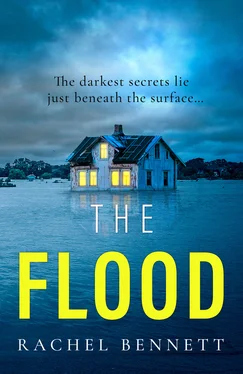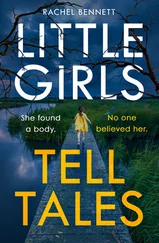‘We wanna get moved in and acclimatise to Newcastle before term starts,’ was her excuse.
Stephanie said it was presumptuous, going there before the exam results were in. ‘What’s your back-up plan if you don’t get the grades you need?’ she’d asked.
Auryn had shrugged. ‘We’re still leaving.’
It was understandable. Moving into her own place with her boyfriend had to be better than remaining at home. But the real reason for leaving early was obvious: if the sisters stayed under the same roof much longer, they’d go crazy. There was too much bad feeling in the house.
Now Daniela faced the probability that by autumn she’d be alone with their father.
She was aware of a change; aware of the increased tension when her father was home, conscious of her sisters spending as much time as possible away from the house, but she had her own problems. For years she’d been desperate to leave Stonecrop. The perfect time to do so would’ve been after her A levels last year. She’d got a conditional offer for Sheffield university, so long as her results were good enough. It turned out they weren’t. Then laziness or apathy had stopped her going through clearing. She’d told herself that taking a year out was a smart move. She could work, save up some money, then apply to university the following summer.
And yet, somehow she hadn’t got around to that either. Summer was almost there, she’d wasted a year scratching around doing odd jobs, and she still didn’t know what she wanted from her life. She only knew she didn’t want to live it in Stonecrop.
It was far past time to get out. All her friends had already gone. Auryn would be the last of them. Auryn and Leo, of course.
Those were the thoughts that bounced through Daniela’s brain as she trudged along the footpath away from the old house. She was sick of having no plan. Today her father had been fine, albeit uncommunicative, but Daniela’s right shoulder still tingled from the slap she hadn’t quite avoided the day before. It’d been aimed at her face, the culmination of some petty argument that’d escalated out of proportion, but she was faster than her old man now, and it’d caught her a glancing blow on the tip of the shoulder instead. It shouldn’t have hurt, but still she felt it, like a phantom echo.
Even on a summer day, Stonecrop was grey and sheltered, the clouds close enough to touch. The few shadows below the trees were broad and fuzzy-edged. Headache weather; like a storm that refused to break. It’d been like that for weeks. Daniela walked quickly with hands in pockets. Her leather jacket – a hand-me-down from Franklyn, which was too wide in the shoulders and always smelled like smoke – kept out the intermittent breeze.
She knew every inch of the woodlands. Whenever the atmosphere in the house became too oppressive, she’d take to the outdoors, walking for hours, crossing and recrossing her path, trying to lose herself. Sometimes she’d bring her MP3 player with her; other times she let the white noise of nature fill her head instead.
The woods enfolded the village like protective arms. To the south there was nothing but trees as far as Briarsfield, while to the north, the forest petered out into farmland, bisected by the Clynebade, which diverged around Stonecrop as if around an inconvenient stone. A break in the trees allowed a partial view to the north over low-lying fields and hedgerows. If Daniela had been minded to climb a tree, she could’ve seen Winterbridge Farm in the distance.
Some people found the trees eerie, especially when the light was poor, and Daniela sort of understood that. The woods were rife with half heard noises and flickering movements. But the trees were the one part of Stonecrop Daniela liked, because, if she put her head down, she could pretend her world wasn’t limited to this tiny village, hemmed in by rivers. She could imagine walking in any direction for miles and seeing nothing but trees.
The path led her in a sweeping loop to the banks of the Bade. Flowering garlic perfumed the air. At this time of the year, the woods and the riverbanks were carpeted with wild garlic and fading bluebells, unfurling ferns and bramble tangles. The well-worn paths were trampled streaks of brown through the green.
In a muddy hollow beside the river stood a ruined building. It’d once been the home of a wealthy businessman, back in the early twentieth century, but was now little more than a brick shell, the rotted timbers of its first floor having collapsed, the slates of the roof missing, likely adorning the roof of some other property by now. Above the door a carved stone lintel read, Kirk Cottage.
Daniela went down the bank and circled the building. The area never drained properly and, even months after the last flood, the earth was still sodden, the mud churned by footprints from dog-walkers, ramblers or people looking for a fishing spot. Daniela stepped around puddles of stagnant water.
She was annoyed to find someone had replaced the broken board across the side window. She’d smashed the board herself, a few months earlier, to allow access to the interior. Not that anything was inside – more mud, more standing water, a tangle of nettles, corroded and discoloured litter – but that wasn’t the point. There was precious little to do in Stonecrop, and kids made their own entertainment.
Now a new sheet of plyboard had been nailed up, along with a notice that the structure was unsafe and trespassing was forbidden.
Daniela glanced around to make sure no one was about. Then she climbed on the windowsill, gripped either side of the stone window for support, and kicked the board.
The hollow boom rolled across the river and back. Daniela drove her foot into the board several more times until the wood split.
She was breathing hard as she climbed down. She worked her fingers into the split and, with some pushing and shoving, loosened the nails on one side. With a final effort and a satisfying splintering, part of the plyboard came loose. It’d been nailed onto a wooden frame fixed inside the window, but not well enough. Daniela tossed the broken piece of wood aside.
The hole she’d made was just wide enough to let a person climb into the building. Daniela wiped her hands on her jacket. She had no interest in going into the ruin today. She just didn’t want anybody keeping her out.
She left the ruined house and followed the path until she reached the Hackett road. There she hesitated. Turning left would take her into the centre of Stonecrop, where she could maybe try her luck at the Crossed Swords. The landlord liked her well enough, but his wife really didn’t. Daniela had worked there for a few months the previous year, collecting glasses, but there’d been a falling out – a discrepancy in the till one night – which Daniela had got the blame for, and the landlady had never allowed her in the bar since.
If Daniela turned right at the road, she’d eventually reach the town of Hackett. The road wound between fields and crossed the River Bade via the old bridge, which hadn’t been designed for anything more strenuous than horse-drawn traffic, and which had been verging on collapse for twenty years.
It was a fair distance to walk, although she’d done it before, and there might be a bus or someone she could thumb a lift off. When she got to Hackett, she could catch a train to the next town, and the next, and the next …
With an angry shake of her head, Daniela turned left, towards Stonecrop. Who was she fooling? Several times a week she made these long, aimless walks, and fantasised about leaving forever, and every goddamn time she made an excuse not to take the first step. She could circle around and around, and sometimes look wistfully towards other places, but always she was drawn back in, like to a magnet.
Читать дальше












